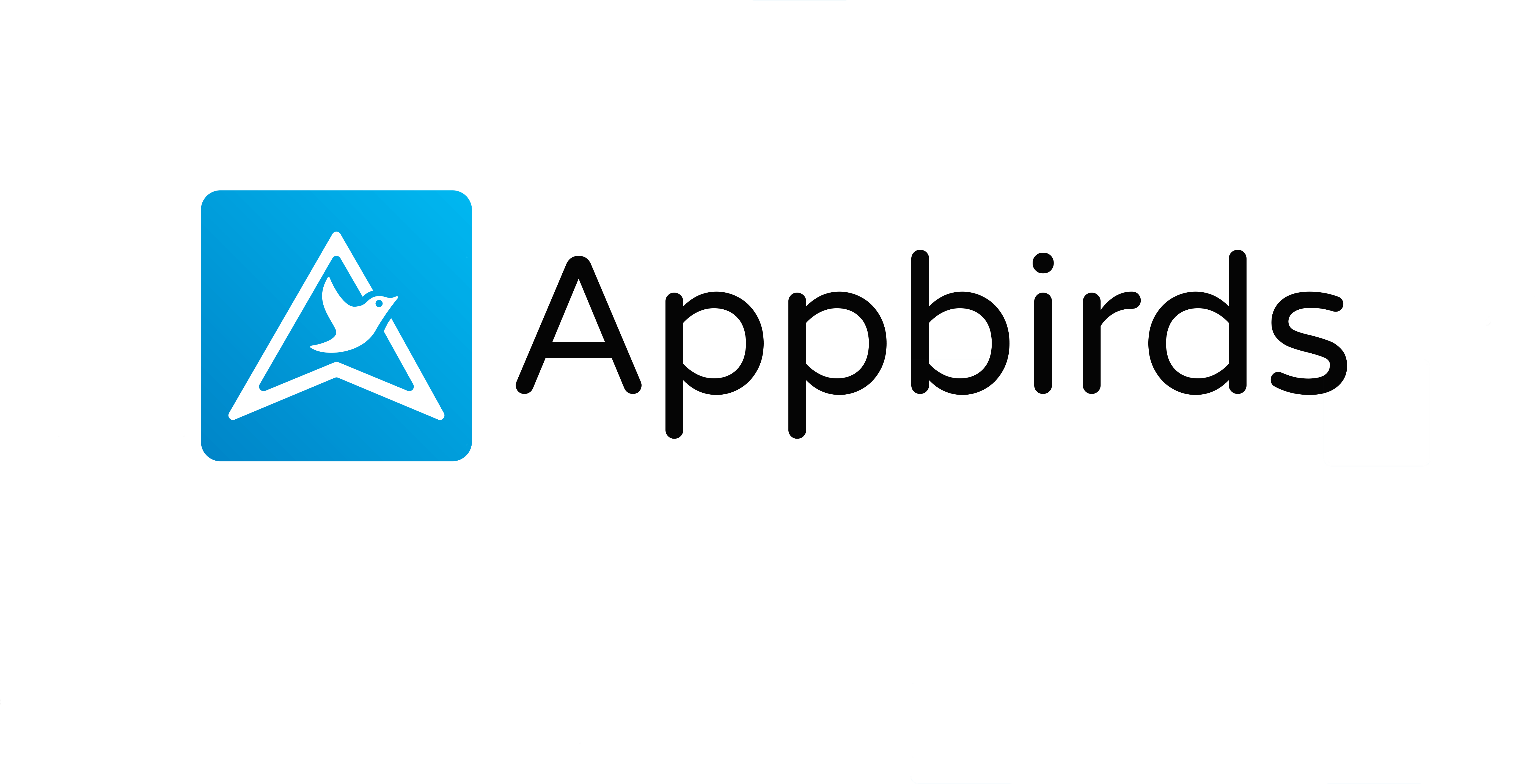In today’s fast-paced digital era, mobile apps are the driving force for business success. Whether you are a small business or a large corporation, the right mobile app development platform is crucial to delivering high-performance, scalable, and user-friendly apps.
At Appbirds Technologies, we specialize in creating innovative mobile solutions that meet modern business needs. Below is a comprehensive guide on the top mobile application development platforms through which companies are empowered to create quality apps with ease and efficiency.
Why Mobile App Development Platforms Are Important?
Just a few years ago, developing mobile apps was a complex and time-consuming process, requiring developers to work with multiple tools and frameworks. Today, mobile app development platforms have revolutionized the process by offering:
- Faster development cycles – Rapid prototyping and deployment.
- Reduced costs – Minimized development expenses with code reusability.
- Enhanced scalability – Seamless adaptation to growing user bases.
- Better security and performance –Integrated security features and improved efficiency.
Now, let us look at the top mobile app development platforms companies can use to create world-class apps.
Top Mobile App Development Platforms
1. Flutter
Flutter, developed by Google, is a framework across platforms that allows developers to create originally compiled apps from a single code base for mobile, web, and desk. It stands for pre -decorated widgets, rapid growth cycles, and a rich set with a strong performance -driven architecture. With Flutter, businesses can create blind attractive applications that originally go on many devices.
Why Choose Flutter?
- Hot Reload – Instantly see code changes without restarting the app.
- Beautiful UI – Customizable widgets for stunning designs.
- High Performance – Uses Dart for smooth, responsive applications.
- Cross-Platform Support – Deploy on iOS, Android, and more.
- Own Rendering Engine – Ensures a consistent UI across devices.
2. React Native
Supported by Meta (previously Facebook), React Native allows companies to develop native-like apps with JavaScript and React. It provides an effective development environment with a large ecosystem of libraries, making it an excellent choice for scalable and maintained apps. Many global companies, including Instagram, Airbnb, and Tesla, have utilized React Reactions Native for their mobile applications.
Why Choose React Native?
- Code Reusability – Develop once, deploy everywhere.
- Strong Community Support – Large developer base for troubleshooting.
- Native-Like Performance – Uses native components for a smooth UX.
- Hot Reloading – Enables real-time changes without restarting.
- Flexible & Scalable – Compatible with various third-party tools.
3. Swift
Swift, created by Apple, is A go-to programming language for developing high-performance iOS apps. Designed to be fast, secure, and expressive, provides powerful development tools and seamless integration with Swift Apple’s ecosystem. Whether apps are developed for iPhones, iPads, or Apple Watch, Swift ensures an optimized and smooth user experience.
Why Choose Swift?
- Speed & Efficiency – Faster than Objective-C and easy to learn.
- Safe & Secure – Modern syntax reduces coding errors.
- Seamless Integration – Works flawlessly with Apple’s ecosystem.
- Regular Updates – Continuously improved by Apple.
4. Kotlin
Kotlin, endorsed by Google, is the preferred language for Android app development. Its concise syntax, interoperability with Java, and additional safety features have made it a favorite among developers in no time. Kotlin facilitates quicker development, better app stability, and smooth integration with Android Studio.
Why Choose Kotlin?
- Modern & Concise – Reduces boilerplate code compared to Java.
- Interoperable with Java – Easily migrate existing Java projects.
- Safe & Reliable – Minimizes common programming errors.
- Highly Scalable – Ideal for startups and enterprises alike.
5. Xamarin
Xamarin, powered by Microsoft, enables developers to build cross-platform mobile apps using C#. It permits code sharing for various platforms but offers native performance. With intensive integration into the ecosystem of Microsoft, Xamarin suits enterprises in need of secure, scalable mobile offerings.
Why Choose Xamarin?
- Native-Like Experience – Provides near-native performance.
- Code Sharing – Reuse up to 90% of code across platforms.
- Secure & Scalable – Enterprise-level security features.
- Seamless Integration – Works well with Microsoft’s ecosystem.
6. Apache Cordova
Apache Cordova is a cross-platform development framework that utilizes HTML, CSS, and JavaScript to develop mobile applications. Developers can use common web technologies to develop mobile apps and access native device capabilities using plugins. Cordova is an ideal choice for companies wishing to turn web apps into mobile experiences.
Why Choose Apache Cordova?
- Plugin Support – Access native device features via plugins.
- Core Components – Pre-built functionalities for faster development.
- App Templates – Ready-to-use templates reduce development time.
- Supports Multiple Tools – Integrates with frameworks like Ionic.
7. Ionic
Ionic is an open-source framework that enables developers to create visually appealing mobile applications using web technologies. Built with HTML, CSS, and JavaScript, Ionic allows for the rapid development of hybrid apps with a single codebase. Its seamless integration with popular front-end frameworks makes it a powerful choice for web-first businesses.
Why Choose Ionic?
- Reduces Cost and Time – Single codebase for multiple platforms.
- Future-Proof – Built on open web standards for scalability.
- Leverage CI/CD – Automate app testing and deployment.
- Native Plugins – Provides access to native device features.
No-Code/Low-Code App Development Platforms
For businesses looking to develop apps rapidly with minimal coding, no-code and low-code platforms provide an efficient solution. These platforms offer drag-and-drop interfaces, allowing users to create apps without extensive programming knowledge.
Best No-Code/Low-Code Platforms
- Mendix – Offers both no-code and low-code development tools.
- OutSystems – AI-powered low-code platform for enterprise apps.
- Bubble – No-code app builder with AI integration.
- Appian – Fast, user-friendly no-code mobile app development.
- Zoho Creator – Pre-built templates for various industries.
Choosing the Right Mobile App Development Platform
The best mobile app development platform depends on several factors:
- Project Requirements – Do you need native, cross-platform, or hybrid development?
- Budget – How much can you invest in development?
- Timeframe – How quickly do you need the app launched?
- Target Audience – Will your app cater to iOS, Android, or both?
At Appbirds Technologies, we analyze your business needs and help you select the most suitable platform to develop high-quality, feature-rich, and scalable mobile applications.
Final Thoughts
Mobile app development platforms have transformed the way businesses build applications. Whether you choose Flutter, React Native, Swift, Kotlin, Xamarin, or other frameworks, each platform offers unique advantages tailored to different business needs.
Looking to develop a powerful mobile app? Appbirds Technologies is here to bring your vision to life with user-friendly, scalable, and future-ready applications.
Let’s build your dream app today! Contact us for a consultation.
Frequently Asked Questions
What exactly is a mobile app development platform, and why should I care?
A mobile app development platform provides the tools and environment to create mobile applications. It handles the complexities of coding, testing, and deployment, allowing businesses to build apps faster, more efficiently, and often at a lower cost than traditional methods. You should care because the right platform can significantly impact the success of your app and your business goals.
Security is my top priority. Which platform is known for its robust security features?
Swift (for iOS) and Kotlin (for Android) are known for their security features due to their modern syntax and the ecosystems they operate within. Xamarin also offers enterprise-level security features due to its integration with the Microsoft ecosystem.
I want an app that looks and feels completely native on both iOS and Android. Which platform should I choose?
While cross-platform frameworks have improved significantly, native development with Swift (for iOS) and Kotlin (for Android) typically results in the best native look and feel, offering the most seamless user experience.
I’ve heard a lot about Flutter. What makes it so popular right now?
Flutter’s popularity stems from its:
- Hot Reload: See code changes instantly.
- Beautiful UI: Highly customizable widgets for visually appealing designs.
- High Performance: Dart language and optimized rendering engine.
- Cross-Platform Support: Deploy to iOS, Android, web, and desktop from a single codebase.
What are the advantages of using Kotlin over Java for Android development?
Kotlin offers several advantages over Java:
- Modern and Concise: Reduces boilerplate code.
- Interoperable with Java: Easily integrate with existing Java projects.
- Safe and Reliable: Minimizes common programming errors.
What is the main benefit of using a no-code or low-code platform? When would I consider using one?
The main benefit is the ability to develop apps rapidly with minimal coding knowledge. Consider no-code/low-code platforms if you:
- Need a simple app quickly.
- Have limited coding expertise.
- Want to prototype an app before investing in full-scale development.
However, these platforms may have limitations in customization and advanced features.
Your blog mentions Appbirds Technologies. How can you help me decide which platform is right for my project?
At Appbirds Technologies, we offer:
- In-depth Consultation: We’ll analyze your project requirements, budget, target audience, and desired features.
- Platform Recommendation: Based on our analysis, we’ll recommend the most suitable platform(s) for your needs.
- Full-Cycle Development: We provide end-to-end mobile app development services, from ideation to deployment and maintenance.
- Expertise Across Platforms: Our developers are proficient in Flutter, Swift, Kotlin, and other leading platforms.
Contact us today for a consultation, and let’s discuss your mobile app vision! We’ll help you choose the best path to success.



